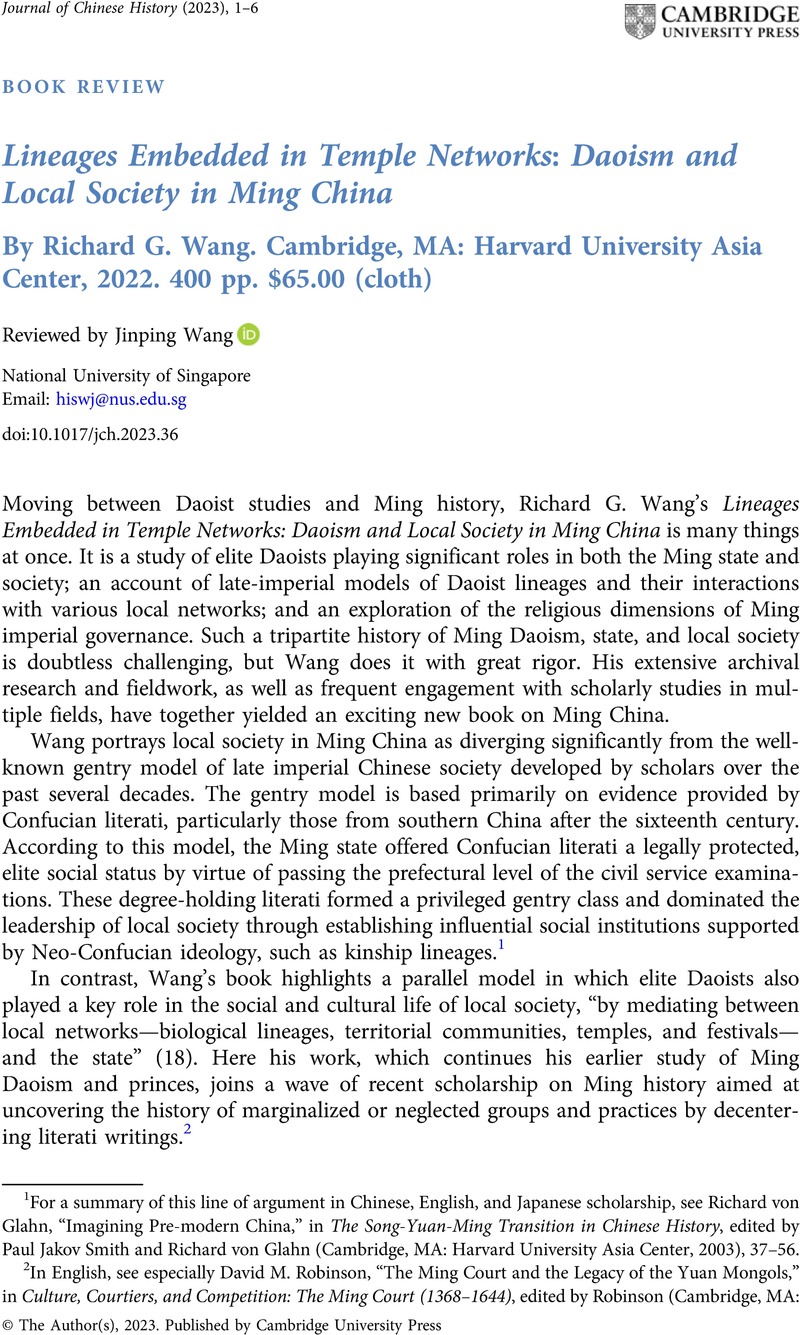No CrossRef data available.
Published online by Cambridge University Press: 30 November 2023

1 For a summary of this line of argument in Chinese, English, and Japanese scholarship, see Glahn, Richard von, “Imagining Pre-modern China,” in The Song-Yuan-Ming Transition in Chinese History, edited by Smith, Paul Jakov and von Glahn, Richard (Cambridge, MA: Harvard University Asia Center, 2003), 37–56Google Scholar.
2 In English, see especially Robinson, David M., “The Ming Court and the Legacy of the Yuan Mongols,” in Culture, Courtiers, and Competition: The Ming Court (1368–1644), edited by Robinson (Cambridge, MA: Harvard University Asia Center, 2008), 365–421CrossRefGoogle Scholar; Robinson, David M., Ming China and Its Allies: Imperial Rule in Eurasia (Cambridge: Cambridge University Press, 2020)Google Scholar; Wang, Richard G., The Ming Prince and Daoism: Institutional Patronage of an Elite (Oxford: Oxford University Press, 2012)CrossRefGoogle Scholar; Wang, Jinping, In the Wake of the Mongols: The Making of a New Social Order in North China, 1200–1600 (Cambridge, MA: Harvard University Asia Center, 2018), chap. 5Google Scholar.
3 Dean, Kenneth, Taoist Rituals and Popular Cults of Southeast China (Princeton: Princeton University Press, 1993)Google Scholar; Dean, Kenneth and Zhenman, Zheng, Ritual Alliances of the Putian Plain, vol 1 (Leiden: Brill, 2010)Google Scholar; Faure, David, Emperors and Ancestors: State and Lineage in South China (Stanford: Stanford University Press, 2007)Google Scholar; Goossaert, Vincent, “Taoists, 1644–1850,” in The Cambridge History of China, Volume 9: The Ch'ing Dynasty to 1800, Part 2, edited by Willard J. Peterson, 412–57 (Cambridge: Cambridge University Press, 2016)Google Scholar; Lagerwey, John, “The Emergence of a Temple-Centric Society,” Minsu quyi 205 (2019): 29–102Google Scholar; Szonyi, Michael, Practicing Kinship: Lineage and Descent in Late Imperial China (Stanford: Stanford University Press, 2002)CrossRefGoogle Scholar; Szonyi, Michael, The Art of Being Governed: Everyday Politics in Late Imperial China (Princeton: Princeton University Press, 2019)CrossRefGoogle Scholar; Szonyi, Michael and Zhenman, Zheng, Family Lineage Organization and Social Change in Ming and Qing Fujian (Honolulu: University of Hawai‘i Press, 2011)Google Scholar.